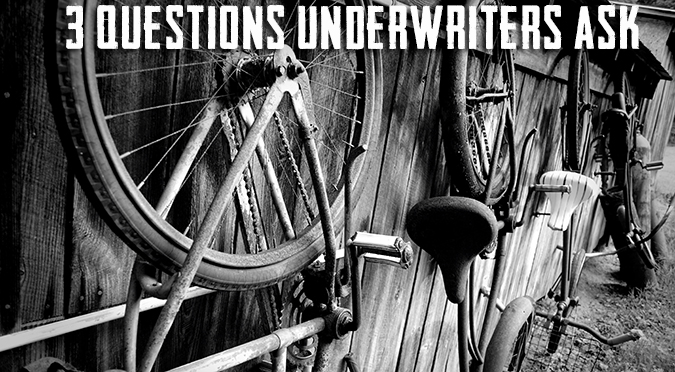Just because it’s full of big, intimidating words and phrases doesn’t mean managing your money has to be difficult. This is the second of an ongoing series of posts on the basics of banking, aimed at taking the mystery out of personal finance. (Find the first here.) We’ll focus on providing information, overviews and tips to help take the guesswork and confusion out of how to handle your money.
Keeping your money safe and secure is just one of the features offered by credit unions and banks. Financial institutions offer a number of different products and services to help you reach your objective, whether that’s buying or improving your home, purchasing a car, building your credit or any number of other goals.
Mortgage loans
Besides checking accounts, savings accounts, money markets and share certificates (covered in this previous blog), one of the most popular products offered by most financial institutions are mortgage loans (the loan most people need in order to purchase a home.) Typically mortgage loans are the largest and also often the most complicated type of loan.
The best way to get favorable loan terms — like interest rates and lower down payment options — is to have good credit. The better an individual’s credit, the better chance the borrower will get a favorable interest rate.
One of the more common mortgage loans is a 30-year loan, meaning if the borrower paid the minimum amount each month for the life of the loan, they would pay off the loan in 30 years. Loans are available in many different terms (15-, 20- and 25-year loans are also common).
“It is important to understand all the different terms and rate options available so you can have a payment that works for you and your finances,” said Elevations Credit Union Loyalty Marketing Manager Heath Blanton. “If you do not plan to stay in your house forever, then it might not make sense to get a 30-year loan. The best way to start preparing is to speak with a Mortgage Loan Officer as the process for buying a home can take anywhere from a month to several years, depending on a borrower’s situation.”
Home equity loans and lines of credit
Once you’ve bought a home, you can start to earn equity with the value of the home increasing and by paying your mortgage loan balance down. Once the value of the home reaches a certain level over what’s owed on the home, the homeowner has an option to apply and qualify for a home equity line of credit (HELOC) or get a home equity loan.
“A home equity loan or line of credit is generally the most secure and cost-effective way to borrow a large sum of money,” Blanton said. “This will always be dependent on what your home is worth minus what you already have borrowed against it but, just like a mortgage, a home equity loan comes with several different terms and rates that are tailored to meet your financial goals.”
The two are similar in that they both involve borrowing money against the equity built in a home.
A home equity loan is for a set amount of money. One example would be if a homeowner wanted to make an improvement on their house that will cost $50,000. They could take out a home equity loan for $50,000, then pay a fixed payment amount per month until the principal and interest are paid off.
A HELOC, on the other hand, is simply a line of credit with which the homeowner can borrow against the home equity at any time. If you get a HELOC approved for $50,000, it means at any time you can borrow any amount up to and including $50,000. The first 10 years of an Elevations HELOC is called the “draw period” and only minimum, interest-only payments are required. The final 10 years of the HELOC is the “repayment period.” You can’t draw money from the HELOC during this time. Monthly payments toward interest and principal will be calculated and paid down over these 10 years until the balance reaches zero.
Auto loans
Most auto loans are offered for new cars or newer model used cars. The cars themselves are used as collateral. They work similar to a home equity loan in that the borrower will get a set amount of money, then pay it back monthly over the term of the loan.
At Elevations Credit Union, we strive to offer a variety of different auto loans.
“Unlike other financial institutions, we have much more flexibility when it comes to auto loan options,” Blanton said. “These loans can be used to purchase a used car from a private party, a new car from a dealership, or even borrow against a car you own to help consolidate debt.
“With low, fixed-rate options, our auto loans can make financing a vehicle the easiest part of shopping for a new car.”
Credit cards
Credit cards, unlike the previous examples, are considered “non-collateral” loans. This means purchases can be made or bills paid with the understanding the balance will be paid back, but it is not held or guaranteed with a lien against specific collateral, such as a car or home. Traditionally, credit cards have a higher interest rate than a “lien-secured” loan.
“Interest rates are variable (can increase/decrease) and are typically the highest among any credit product, so it is important to manage your balances on credit cards responsibly,” Blanton said.
Many cards do carry bonuses, however. For instance, an Elevations Visa® Signature Cash Rewards Credit Card provides cash back* for every dollar spent. Similarly, the Elevations Visa® Signature Travel Rewards Credit Card earns points for every dollar spent. Those points can be redeemed for all manner of travel discounts including flights, hotels and more.
Personal loan
Personal loans can be used for just about anything. Traditional uses include consolidating other, higher-interest debt or to help with an emergency. Personal loans at Elevations are fixed-rate — meaning the interest rate won’t rise or fall — but much like credit cards they tend to have higher interest rates.
Energy loans
Energy loans are a specific type of loan geared toward home improvements. Replacing windows and doors, buying a new energy efficient air conditioner or furnace or installing solar panels all may qualify for an energy loan.
In our area, three different government agencies have energy loan programs. Fort Collins residents connected to the City of Fort Collins utilities may be eligible for a HELP* (Home Efficiency Loan Program) loan while Boulder County residents have a Boulder County Energy Smart* program.
All others can look to the state of Colorado’s RENU* (Residential Energy Upgrade Loan) program to see if they qualify.
*Links to third-party site
Share/Deposit secured credit cards
Some people who are just starting out may have little to no credit. Building up good credit takes time and is important if you’d like to get favorable limits and interest rates on any of the above loans.
A Share/Deposit secured credit card can be just the thing.
“These secured cards require zero credit to qualify,” Blanton said. “As low as $300 is needed for a credit card and $500 for a personal loan to secure and can help establish/rebuild credit. There are no annual fees to worry about and the interest rate is minimal, so if you pay off the balance on the credit card every month you will not pay any interest.”
With regular, on-time payments, over time you can watch your credit scores rise.
RV loans
Some financial institutions, including Elevations, offer loans specifically for recreational vehicles, motorcycles and boats as well. If you’re looking to take a camping trip across America or just looking to head out on weekends, these loans will work similarly to the auto loans described above, only for these types of vehicles.
Importance of good credit
One overlapping theme to nearly all these products is the importance of good credit. In almost all cases, good credit scores will provide the financial flexibility and freedom to reach your goals.
Making payments on time and keeping unsecured loan balances to a minimum are both great ways to raise a credit score which, in turn, makes for a much easier path to a sound financial future.
For more information on loan options, credit cards, building credit and reaching financial goals, reach out to one of our Financial Solutions Guides.
Equal Housing Opportunity
NMLS 717246
All credit union rates terms and promotions are subject to change at any time.
*Credit qualifications and membership required. Credit card rate subject to change. For complete terms, please see the Elevations Visa Application and Solicitation Disclosure (PDF).


